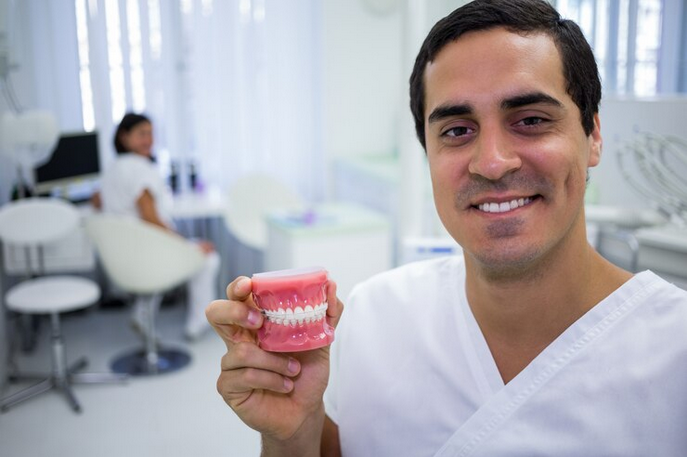Temporomandibular Joint (TMJ) disorders can be a source of persistent discomfort, affecting the jaw joint and surrounding muscles. Seeking treatment from a skilled dentist is crucial to unlocking comfort and restoring optimal function. In this comprehensive guide, we'll explore the intricacies of TMJ disorders, the role of a skilled dentist in diagnosis and treatment, and the various approaches to alleviate TMJ-related discomfort.
Understanding TMJ Disorders
1. The TMJ Complex:
The temporomandibular joint is a hinge-like joint that connects the jawbone to the skull. It facilitates essential functions such as chewing, speaking, and facial expressions. TMJ disorders arise when there is dysfunction or misalignment in this complex joint, leading to a range of symptoms, including jaw pain, headaches, and difficulty in opening or closing the mouth.
2. Common Causes of TMJ Disorders:
Several factors contribute to the development of TMJ disorders. These may include jaw injuries, arthritis, teeth grinding, and stress-induced jaw clenching. Additionally, issues with the alignment of the teeth or the way the upper and lower jaws fit together, known as malocclusion, can also play a role in TMJ dysfunction.
The Role of a Skilled Dentist in TMJ Treatment
1. Comprehensive Diagnosis:
A skilled dentist plays a pivotal role in diagnosing TMJ disorders through a comprehensive evaluation. This may involve a thorough examination of the jaw joint, bite analysis, and, in some cases, imaging studies like X-rays or MRI scans. Accurate diagnosis is essential for tailoring an effective treatment plan.
2. Customized Treatment Plans:
Every TMJ case is unique, and a skilled dentist will create a customized treatment plan based on the specific needs and symptoms of the individual. Treatment may involve a combination of conservative approaches, such as lifestyle modifications, pain management strategies, and dental interventions to address underlying issues contributing to TMJ dysfunction.
3. Occlusal Adjustments:
Malocclusion, or a misalignment of the teeth, can exacerbate TMJ disorders. Skilled dentists may recommend occlusal adjustments, which involve reshaping or adjusting the biting surfaces of the teeth. This aims to achieve a harmonious alignment of the jaws, alleviating stress on the TMJ and promoting better function.
Approaches to Alleviate TMJ-Related Discomfort
1. Lifestyle Modifications:
In some cases, lifestyle modifications can significantly contribute to TMJ symptom relief. These may include stress management techniques, avoiding hard or chewy foods, practicing jaw exercises, and maintaining good posture. A skilled dentist can provide guidance on incorporating these modifications into daily life.
2. Night Guards or Splints:
For individuals who grind their teeth at night, a dentist may recommend the use of night guards or splints. These oral appliances create a barrier between the upper and lower teeth, preventing grinding and clenching and reducing the strain on the TMJ.
3. Physical Therapy:
Physical therapy techniques, such as jaw exercises and stretches, can help improve the strength and flexibility of the jaw muscles. A skilled dentist may collaborate with physical therapists to integrate these exercises into a comprehensive TMJ treatment plan.
The Importance of Seeking Timely Treatment
1. Preventing Progression:
Timely intervention is crucial in addressing TMJ disorders to prevent the progression of symptoms. Ignoring or delaying treatment may lead to increased discomfort, difficulty in jaw movement, and a negative impact on overall quality of life. Seeking the expertise of a skilled dentist at the first signs of TMJ-related issues is essential for effective management.
2. Addressing Underlying Causes:
A skilled dentist not only focuses on symptom relief but also addresses the underlying causes of TMJ disorders. By identifying and treating contributing factors, such as malocclusion or bruxism, the dentist aims to achieve long-term stability and comfort for the patient.
Conclusion: Rediscover Comfort with Skilled TMJ Treatment
In conclusion, unlocking comfort and relieving the symptoms of TMJ disorders is a collaborative effort between individuals and skilled dentists. Understanding the complexity of TMJ issues, the role of a skilled dentist in diagnosis and treatment, and the various approaches to alleviate discomfort is essential for those seeking relief.
If you are experiencing TMJ-related symptoms, don't hesitate to consult with a skilled dentist who specializes in TMJ Treatment Dentist. Through personalized and comprehensive care, you can rediscover comfort, improve jaw function, and enhance your overall well-being. Take the first step towards unlocking comfort and embarking on a journey to a pain-free, functional, and comfortable life.





Comments